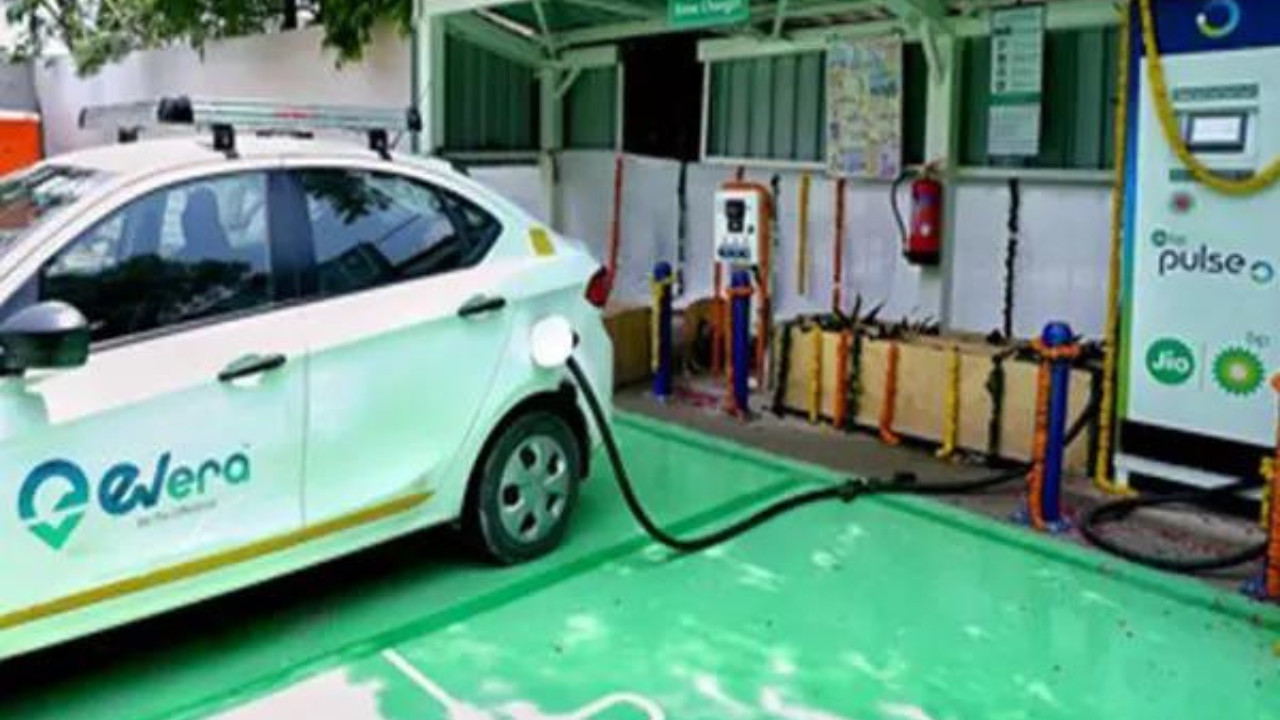Tata Power launched Mumbai’s first MegaCharger hub amid concerns about a skilled manpower shortage hindering EV infrastructure growth. A TERI-MBRDI study emphasizes the urgent need for trained professionals to manage charging stations, highlighting gaps in training and standardization. While public charging points have increased significantly, experts stress that talent readiness must align with hardware deployment to sustain India’s EV transition.
Plugging In: India’s Electric Vehicle Charging Revolution Needs a Workforce Jolt
The electric vehicle (EV) revolution is charging full speed ahead in India, and the hum of electric motors is getting louder. But beneath the surface of sleek new EVs and ambitious government targets lies a challenge that needs immediate attention: the skilled workforce required to power this transformation. Forget just manufacturing cars; we need an army of professionals to build, maintain, and manage the EV charging infrastructure that will fuel India’s electric future. A new study suggests India will need an estimated 200,000 workers dedicated to EV charging infrastructure by 2030. This isn’t just about plugging cars into outlets; it’s about building a robust ecosystem.
The scale of this demand is staggering. Two hundred thousand jobs! Think about it: that’s roughly the population of a mid-sized city, all dedicated to keeping India’s EVs on the road. These aren’t just generic jobs either. We’re talking about highly skilled technicians, engineers, data analysts, and business development specialists.

Who Will Build and Maintain the Charging Stations?
The report highlights the immediate need for skilled labor in several crucial areas. Installation and maintenance of charging stations are paramount. Think about it: each charging point needs careful installation, regular checks, and prompt repairs. Imagine the frustration of arriving at a charging station only to find it out of order. This requires a network of highly trained technicians equipped to handle everything from basic troubleshooting to complex electrical repairs. We need people who can diagnose problems quickly, replace faulty components, and ensure the safety and reliability of the entire charging network.
Beyond the hardware, there’s the software. Each EV charging station is a complex system, involving monitoring, data analytics, and remote management. This creates a demand for software engineers, data scientists, and IT professionals who can ensure the smooth operation of these systems and optimize charging efficiency. Data gathered from charging stations can be used to predict demand, optimize grid load, and identify potential problems before they occur.
The Untapped Potential: Training the Next Generation
So, where will these 200,000 workers come from? The answer lies in a concerted effort to invest in education and training programs. Existing vocational training centers and engineering colleges need to incorporate EV-specific courses into their curricula. This includes hands-on training in the installation, maintenance, and repair of charging equipment, as well as coursework on the underlying electrical and software systems.
Furthermore, the private sector has a crucial role to play. EV manufacturers, charging station operators, and energy companies should partner with educational institutions to offer internships, apprenticeships, and on-the-job training. This will ensure that graduates have the practical skills and knowledge needed to succeed in the rapidly evolving EV industry. Imagine dedicated “EV Charging Academies” sprouting up across the country, churning out skilled technicians and engineers ready to tackle the challenges of this exciting new field.
Beyond the Technical: A Holistic Approach to EV Charging
The demand isn’t just for technical skills. The EV charging ecosystem also requires professionals in sales, marketing, and customer service. Promoting the adoption of EVs requires a skilled salesforce that can educate consumers about the benefits of electric vehicles and the convenience of charging infrastructure. Customer service representatives are needed to answer questions, resolve issues, and ensure a positive charging experience. Business development managers are also crucial in securing land for charging stations, negotiating contracts with property owners, and forging partnerships with other businesses.
This is a massive opportunity to create sustainable jobs and drive economic growth. By investing in education and training, India can not only meet the demand for skilled labor in the EV charging sector but also position itself as a global leader in the electric vehicle revolution. See our article about India’s EV policies.
Seizing the Electric Opportunity
The road to an all-electric future is paved with opportunity. But it requires careful planning, strategic investment, and a commitment to developing the skilled workforce needed to power the revolution. Failing to address this workforce gap could slow down the adoption of EVs, hinder economic growth, and jeopardize India’s efforts to combat climate change. The challenge is clear, and the time to act is now. By prioritizing education and training, fostering collaboration between industry and academia, and embracing a holistic approach to workforce development, India can ensure that its electric vehicle revolution is not just powerful, but sustainable.







